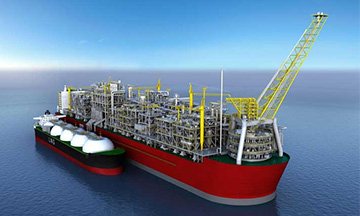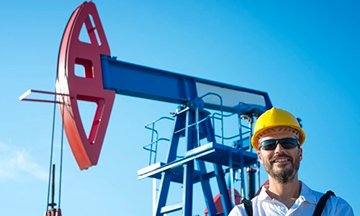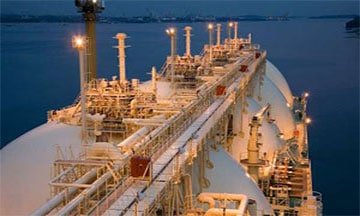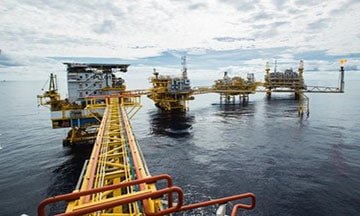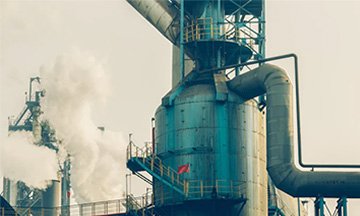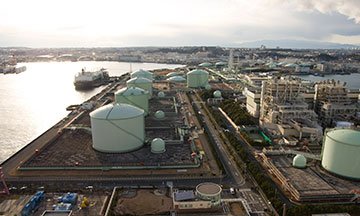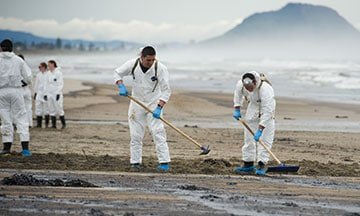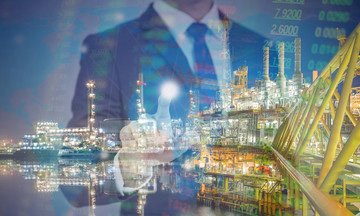FLNG Plant, Vessel, Ship and Stock
| Date | Format | Duration | Fees | |
|---|---|---|---|---|
| 27 May - 31 May, 2024 | Live Online | 5 Days | $2250 | Register |
| 10 Jun - 14 Jun, 2024 | Live Online | 5 Days | $2250 | Register |
| 15 Jul - 19 Jul, 2024 | Live Online | 5 Days | $2250 | Register |
| 23 Sep - 27 Sep, 2024 | Live Online | 5 Days | $2250 | Register |
| 25 Nov - 29 Nov, 2024 | Live Online | 5 Days | $2250 | Register |
| 09 Dec - 13 Dec, 2024 | Live Online | 5 Days | $2250 | Register |
| Date | Venue | Duration | Fees | |
|---|---|---|---|---|
| 13 May - 17 May, 2024 | Dubai | 5 Days | $4750 | Register |
| 10 Jun - 14 Jun, 2024 | Dubai | 5 Days | $4750 | Register |
| 24 Jun - 28 Jun, 2024 | Barcelona | 5 Days | $5695 | Register |
| 01 Jul - 05 Jul, 2024 | Athens | 5 Days | $5695 | Register |
| 29 Jul - 02 Aug, 2024 | Dubai | 5 Days | $4750 | Register |
| 05 Aug - 09 Aug, 2024 | Dubai | 5 Days | $4750 | Register |
| 09 Sep - 13 Sep, 2024 | Johannesburg | 5 Days | $4950 | Register |
| 23 Sep - 27 Sep, 2024 | Dubai | 5 Days | $4750 | Register |
| 21 Oct - 25 Oct, 2024 | Dubai | 5 Days | $4750 | Register |
| 11 Nov - 15 Nov, 2024 | Dubai | 5 Days | $4750 | Register |
| 09 Dec - 13 Dec, 2024 | Dubai | 5 Days | $4750 | Register |
| 23 Dec - 27 Dec, 2024 | Lagos | 5 Days | $4950 | Register |
Course Overview
With the increase in the global demand for natural gas, there is a need for innovation in meeting the demands.
What is an FLNG vessel?
The Floating Liquified Natural Gas (FLNG) plays a significant role as a production technology to increase the production and supply of natural gas. The concept of FLNG is more recent in practice and has required great detailing on the equipment and instrument used, including the overall plant and the ship and vessel used offshore.
What is the function of FLNG?
FLNG offers many advantages compared with the conventional means of producing natural gas, and these advantages include lower production costs, reduced environmental impact, and increased sustainability.
This Zoe training course will equip you with the needed knowledge and understanding of the concept surrounding the smooth operation of FLNG. The course explores the main component of FLNG, with a primary focus on the physical requirement for setting up an FLNG plant. You will know about all the demand for a vessel type/ship for transporting products for further processing. This course will provide you with the required skills to work on an operation on an FLNG plant.
Course Objectives
The main objective of the FLNG Plant, Vessel, Ship and Stock training course is to empower professionals with:
- A complete understanding of the concept of FLNG and its operation
- Knowledge on selecting the correct type of liquefaction process that is suitable for different scales of FLNG and feed gas composition
- Required information to select the appropriate construction method for setting up the plant
- Ability to carry out a design optimisation for the plant
- Awareness and understanding of recent findings regarding an FLNG plant’s operation and transportation setup
- Understanding the role of every operative needed on the offshore site
- Ability to train other professionals or operatives working in an FLNG plant or involved in its operation
- Safety guidelines on the offshore plant and in any production and transport equipment operation
- Required skills to ensure overall maintenance of FLNG plant and also ensure reduced environmental impact
Training Methodology
Zoe Talent Solutions employs an effective training methodology in delivering all course content. The course is tailored to suit the training audience and constantly reviewed based on feedback to ensure smooth learning. The training is carried out by skilled and experienced professionals across all the different aspects of the domain. In addition, the course is tailored to ensure adequate participation and engagement of the trainees.
To facilitate learning, case studies, projects and real-life scenarios are presented to the audience to work on and apply the learning concepts. In addition, Zoe Talent Solutions applies a unique learning method called the DO-Review-Learn-Apply Model to convert learning outcomes to real-life skills and practical knowledge.
Organisational Benefits
Here are some of the ways the organisation will benefit from their personnel taking the course:
- Skilled professionals in the handling of an FLNG plant, vessel, ship and stock
- Compliance with structural standards and integrity required for carrying out FLNG liquefaction and transportation
- Application of current methods and concepts in improving the overall performance of an existing structure
- Step-down training for other employees in the organisation and constant learning re-evaluation
- Implementation of safety measures in operation and handling of natural gas
- Maintenance of standard and quality of natural gas and the process of liquefaction of the gas and transport
- Environmental hazard compliance and easy identification of means of improving the production process
- Organisational efficiency and adequate utilisation of resources available for operation, including prevention of waste of gas or material resources
- Strategic decision making for the organisation based on well-informed experience and insights contributing to organisational growth
Personal Benefits
Aside from organisational benefit, the professionals that undergo this training course will benefit the following:
- Proper understanding of how floating LNG operates and how this differs from the operation of conventional natural gas production
- Required skill and expertise to oversee an operation on an offshore floating plant
- Awareness of the physical and structural design specification for each component of the plant
- Awareness of the different vessels and ships suitable for engagement in transporting LNG from floating site
- Well equipped with up-to-date knowledge available within the industry
- Awareness in the proper application of relevant, recent and innovative concepts
- Ability to oversee junior employees and professionals responsible for the different parts of the production process
- Budding network with brilliant professionals available in the industry for both design of equipment and managing of operations
- Better decision-making skills relating to production, storage and offloading of large amounts of LNG
Who Should Attend?
- Top management involved in decision making related to the production, storage and transport of LNG
- Executives and managers overseeing day-to-day operation at the offshore site
- Engineers responsible for the installation and operation of the production plant
- Compliance officers to ensure the standard of the operating procedures
- Quality assurance and auditors that are responsible for maintaining the quality of natural gas produced
- Legal advisors and environmental officers to maintain the strict regulation of operational legislation and reduction of environmental hazards
- Any other professional within or outside the industry willing to learn and understand the FLNG process
Course Outline
The course outlines the following topics that will be covered on the concept of FLNG production and transportation:
Module 1: Overview of FLNG
- Introduction to FLNG
- History of FLNG operations
- Active FLNG sites
- Composition
- Turret mooring
- LNG production system
- LNG storage system
- LNG loading system
- LNG transport system
- Design specification and requirement
Module 2: Construction method of FLNG
- Modular method
- Hybrid method
- Skidding method
- Design Operating Conditions (DOC
- Design Extreme Conditions (DEC)
- Survival conditions
Module 3: Construction design of ship and carrier vessel
- Hull fabrication
- Ship conversion
- Large storage tanks
- Turret trunk and auxiliaries
- Transformers and magnetic bearing control
- Heat exchangers and cooling pump
- Liquid expander and compressor
- Piping layout
- Pipe stress and support
Module 4: Loading and transportation of LNG
- Side-By-Side offloading
- Tandem offloading
- Tail unloading
- Split arrangement
- Generic liquefaction design
- Segregation of functions
- Parallel construction paths
- LNG storage tanks
- MOSS type
- SPB type
- GTT type
Module 5: Sampling and separation of liquefied gas
- Acid gas removal
- Dehydration
- Mercury removal
- Fractionation
- Manual sampling
- Automatic sampling
- Representative sampling
Module 6: Liquefaction technology and operation
- Refrigerant makeup
- Easy operability
- Efficient fuel consumption
- Expansion liquefaction
- Horizontal separator
- Absorption columns
Module 7: Implementation of safety features
- Structural integrity
- Cryogenic spill prevention
- LNG
- Refrigerants
- Fire and explosion-proof
- Blast walls
- Egress and
- Emissions
- Mooring system
Module 8: Inspection of operational equipment
- Routine inspection
- Periodic maintenance
- Auditing
- Equipment test-run
- Limit compliance
- Regulator
Module 9: Inspection of Ship and Carrier Vessel
- Annual Surveys
- Surveys During Construction of LNG Ships
- During construction
- After construction
- Periodic survey
- Buyers Inspections
- SIRE Inspections
Module 10: International Code For The Construction & Equipment Of Ships Carrying Liquefied Gases In Bulk (IGC CODE)
- Gas Carrier Rules and Regulations
- LGC code
- Vessel arrangements for LNG ships
- Ship survival capability
